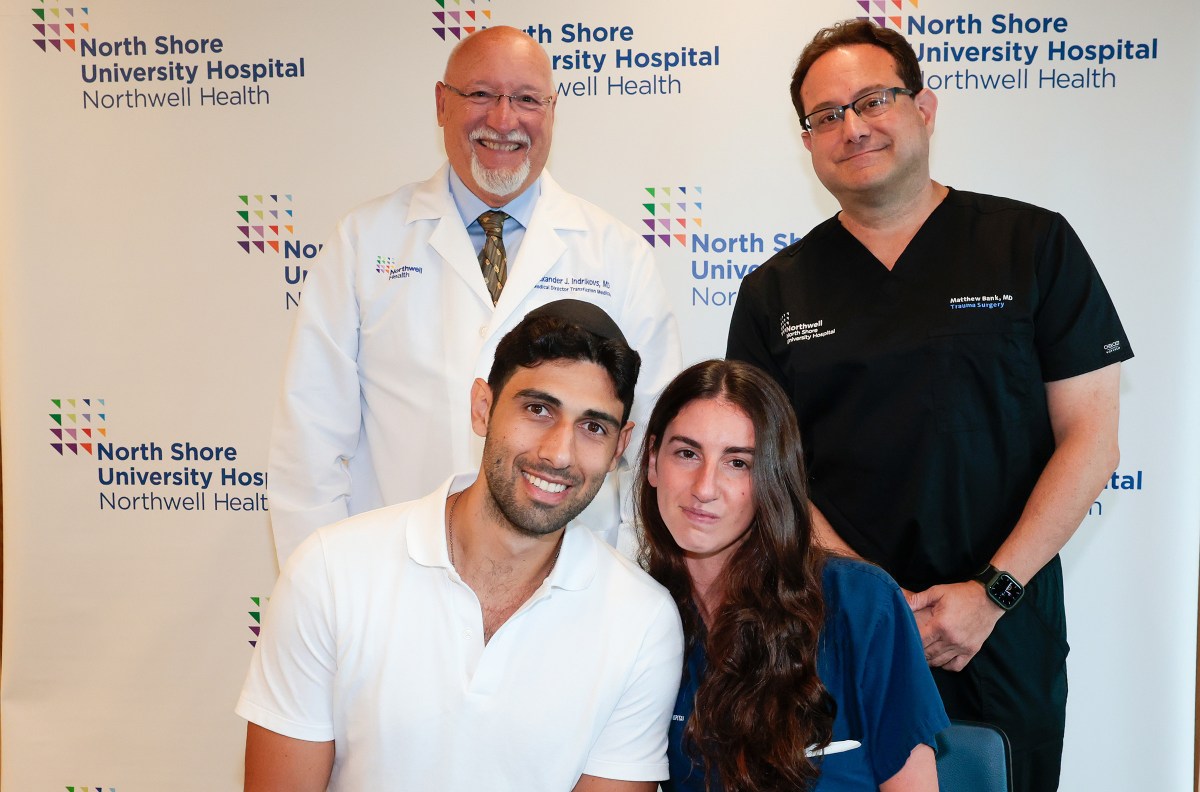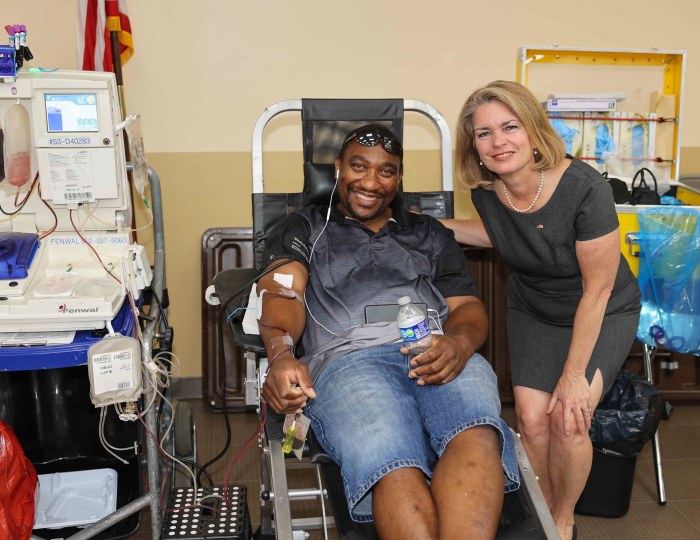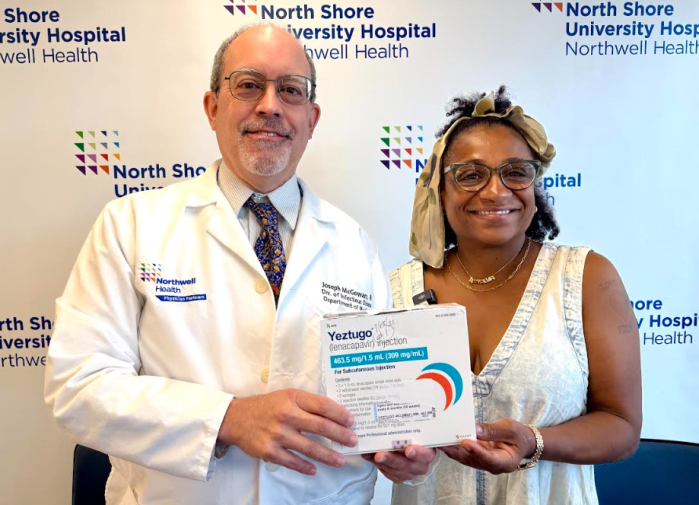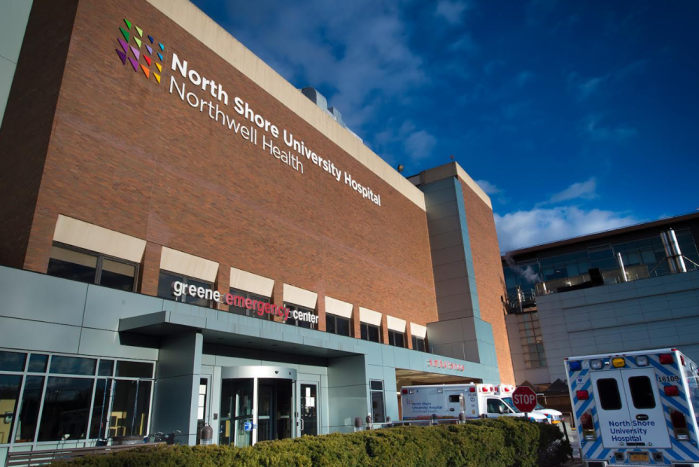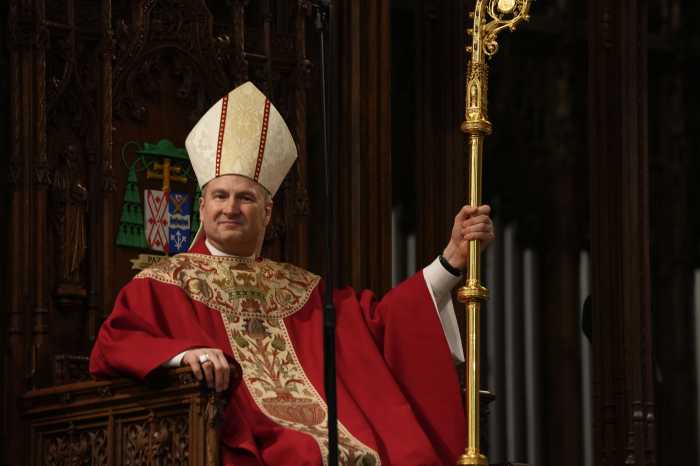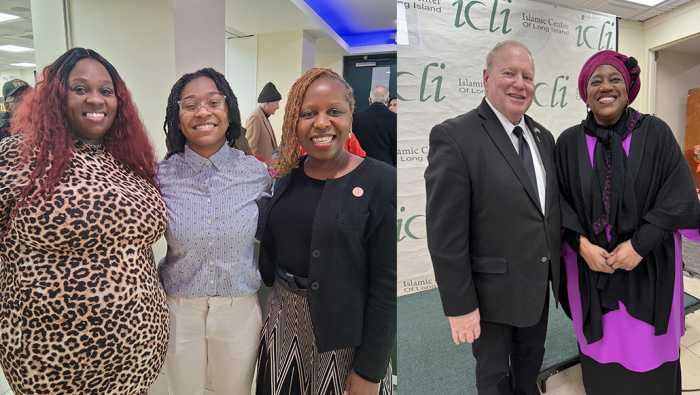It took 47 units of donated blood, two surgeries and nearly 100 medical professionals to save Cody Cohen’s life after a ruptured artery nearly killed the 28-year-old father from Great Neck, a survival story doctors say underscores the urgent need for blood donors.
Cohen was working from home last year when what began as stomach pain quickly escalated. He collapsed after breaking into a cold sweat, the result of an aneurysm in his splenic artery that had burst.
“It’s usually a trauma thing, like you get into a car accident or something crazy like being hit in the stomach with a metal baseball bat, but it was nothing,” Cohen said. “Especially because I wasn’t working out, I wasn’t playing any sports, I’ve been relatively fine, it just happened so quickly.”
His wife, Gabriella Orbach, a nurse on maternity leave, witnessed the episode and called Hatzolah paramedics, who stabilized him and brought him to Northwell’s North Shore University Hospital in Manhasset.
Paramedics are special people “to be able to come into the house when the people around you are obviously at their lowest most chaotic, like so scared for their family and they are coming in and they are like this stabilizing force that just knows exactly what to do, does all the right stuff,” said Orbach.

Cohen arrived at the Level 1 trauma center conscious but unable to feel his legs as fluid built in his abdomen.
A CT scan revealed the aneurysm, but before he could be operated on, he went into cardiac arrest.
Surgeons manually restarted his heart in a newly opened hybrid operating room and began what would be two surgeries over 10 hours.
Trauma teams employed resuscitative endovascular balloon occlusion of the aorta, known as REBOA, and ultimately removed his spleen after embolization stymied the bleeding. At one point, doctors said, a surgeon held his hand over the artery for two hours to stop blood loss.
“About 10 percent of the people actually survive what he went through,” said Matthew Bank, executive director of the Northwell Trauma Institute. “The average male has about 20 units of blood in their body. So we replaced his entire blood volume twice in the operating room before we got control of the aneurysm.”

Cohen required 47 units of blood during the initial surgeries and more than 80 units of blood products during his hospital stay. He was discharged six days later with normal brain and heart function, despite concerns over massive blood loss.
“It takes a lot of volunteers in the community to donate all the blood components that were used in this case,” said Alexander Indrikovs, senior director of Transfusion Medicine at Northwell Health. “We keep about 200 units of Cody’s blood type, which is O positive, in our Blood Bank. But it takes dedicated blood donors that come again and again to treat cases like this.”
Cohen, who was back to playing basketball three months after the ordeal, reunited this week with his care team to thank them and to urge the public to donate blood amid an ongoing shortage.
“Blood donation saved my life,” Cohen said. “I’m living proof of the importance of blood donation and how it can impact any person. When you’re giving blood, this outcome, my outcome, is the one you’re hoping for.”
The New York Blood Center has a critical need for type O positive, O negative and platelets.
Donations can be scheduled at https://donate.nybc.org/donor/schedules/zip.




